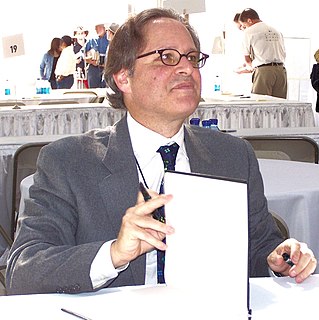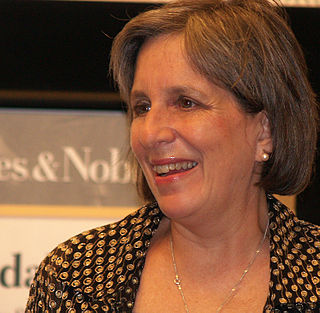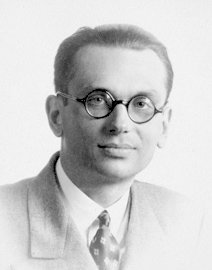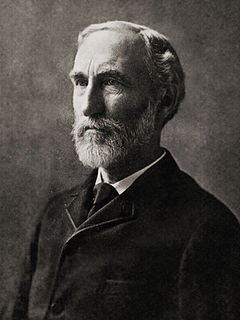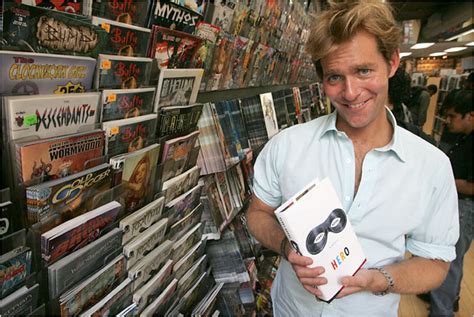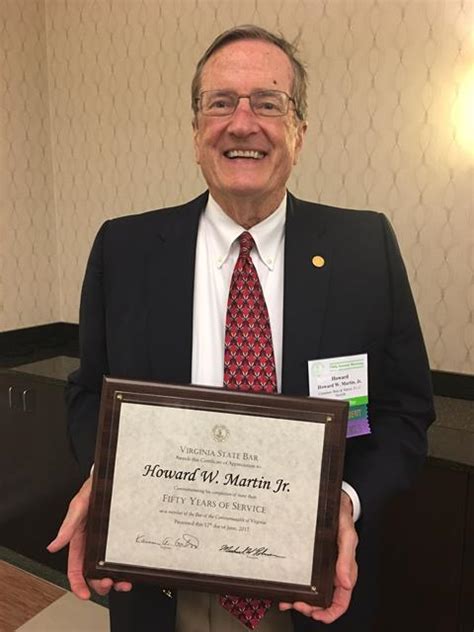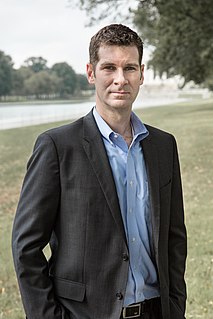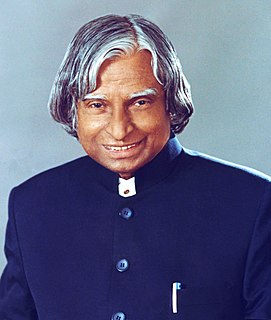Top 1200 Systems Thinking Quotes & Sayings - Page 5
Explore popular Systems Thinking quotes.
Last updated on December 5, 2024.
Your remarks upon chemical notation with the variety of systems which have arisen, &c., &c., had almost stirred me up to regret publicly that such hindrances to the progress of science should exist. I cannot help thinking it a most unfortunate thing that men who as experimentalists & philosophers are the most fitted to advance the general cause of science & knowledge should by promulgation of their own theoretical views under the form of nomenclature, notation, or scale, actually retard its progress.
What we're thinking about is a peaceful planet. We're not thinking about anything else. We're not thinking about any kind of power. We're not thinking about any kind of struggles. We're not thinking about revolution or war or any of that. That's not what we want. Nobody wants to get hurt. Nobody wants to hurt anybody. We would all like to be able to live an uncluttered life. A simple life, a good life. And think about moving the whole human race ahead a step, or a few steps.
A preventive war, to my mind, is an impossibility today. How could you have one if one of its features would be several cities lying in ruins, several cities where many, many thousands of people would be dead and injured and mangled, the transportation systems destroyed, sanitation implements and systems all gone? That isn't preventive war; that is war.
The problems with willpower are many, but they may hardly be noticed by the person focused narrowly on success. First, there is little economy of means; in systems thinking terms, we act without leverage. We attain our goals, but the effort is enormous and we may find ourselves exhausted and wondering if it was worth it when we have succeeded. Ironically, people hooked on willpower may actually look for obstacles to overcome, dragons to slay, and enemies to vanquish--to remind themselves and others of their own prowess.
There are a few societies that show signs of having been very rational about the physics of construction and the physics of real life. Some of the old middle-Eastern societies had downdraft systems over whole cities, and passive, rapid-evaporation ice-making systems. They were rational people using good physical principles to make themselves comfortable without additional sources of energy.
I say we have not even had the decency to maintain the assets that our parents and grandparents built for us - our roads, our bridges, our wastewater systems, our sewer systems; by the way, those weren't Bolsheviks, those weren't socialists that built those things for us - much less build the infrastructure we need for the 21st century.
In the current environment, attributing low student performance to teacher tenure is one of the great unproven causal links out there. The relationship just hasn't been examined very carefully, but we should all recognize that in higher education the strongest institutions generally have the most robust tenure systems, and in elementary and secondary, the states with the strongest teacher unions (and tenure systems) tend to have the highest student performance.
I was raised thinking that moral and ethical standards are universals that apply equally to everyone. And these values aren't easily compatible with the kind of religion that posits a Creator. To my way of thinking, an omnipotent being who sets up a universe in which thinking beings proliferate, grow old, and die (usually in agony, alone, and in fear) is a cosmic sadist.
He didn’t know if that was really true or not, but he discovered something which was tremendously liberating: he didn’t care. He was very tired of thinking and thinking and still not knowing. He was also tired of being frightened, like a man who has entered a cave on a lark and now begins to suspect he is lost. Stop thinking about it, then. That’s the solution.
If the suns come down, and the moons crumble into dust, and systems after systems are hurled into annihilation, what is that to you? Stand as a rock; you are indestructible. You are the Self, the God of the universe. Say - "I am Existence Absolute, Bliss Absolute, Knowledge Absolute, I am He," and like a lion breaking its cage, break your chain and be free forever. What frightens you, what holds you down? Only ignorance and delusion; nothing else can bind you. You are the Pure One, the Ever-blessed.
With vertical thinking one may look for different approaches until one finds a promising one. With lateral thinking one goes on generating as many approaches as one can even after one has found a promising one. With vertical thinking one is trying to select the best approach but with lateral thinking one is generating different approaches for the sake of generating them.
The development of mathematics toward greater precision has led, as is well known, to the formalization of large tracts of it, so that one can prove any theorem using nothing but a few mechanical rules... One might therefore conjecture that these axioms and rules of inference are sufficient to decide any mathematical question that can at all be formally expressed in these systems. It will be shown below that this is not the case, that on the contrary there are in the two systems mentioned relatively simple problems in the theory of integers that cannot be decided on the basis of the axioms.
The laws of thermodynamics, as empirically determined, express the approximate and probable behavior of systems of a great number of particles, or, more precisely, they express the laws of mechanics for such systems as they appear to beings who have not the fineness of perception to enable them to appreciate quantities of the order of magnitude of those which relate to single particles, and who cannot repeat their experiments often enough to obtain any but the most probable results.
If nature leads us to mathematical forms of great simplicity and beauty - by forms I am referring to coherent systems of hypothesis, axioms, etc. - to forms that no one has previously encountered, we cannot help thinking that they are "true," that they reveal a genuine feature of nature... You must have felt this too: The almost frightening simplicity and wholeness of relationships which nature suddenly spreads out before us and for which none of us was in the least prepared.
This trial cannot be separated from the process of the historical struggle in Palestine that continues today between the Zionist Movement and the Palestinian people, a struggle that centers on Palestinian land, history, civilization, culture and identityAs for your judicial apparatus, which is where this court comes from: it is one of the instruments of the occupation whose function is to give the cover of legal legitimacy to the crimes of the occupation, in addition to consecrating its systems and allowing the imposition of these systems on our people through force.
Americans are cultured from their earliest years to be either one-sided douloi or one-sided banausoi, i.e. either they cannot think abstractively/conceptually/orchestrally or else they can only think abstractively. Thinking in a truly rational dialectic between intuition and intellect is just beyond the reach of our nation of emotionalist helots. What prevails among us truly has to be called not thinking but "thinking," a pathetic surrogate for actual thinking for the benefit of existentially or modally crippled mentalities.
I think that things like curses or whatever - those labels - come from belief systems, universal belief systems. So when you get a global consciousness of something, then that becomes a quote-unquote "truth" for everybody. You know, "This is what happens in the Kennedy family." "This is what happens with the Hemingways." And the more people believe in it, the more it kind of resuscitates the problem; it keeps bringing life to this idea that a curse exists that you can never get out from under.
The good news is that there is strong movement in this direction of shifting from domination systems to partnership systems. Over the past several hundred years, one progressive movement after another has challenged traditions of domination - from the 18th century "rights of man" movement challenging the "divinely ordained right" of kings to rule their "subjects" to today's environmental movement challenging the once hallowed "conquest of nature."
Stirner and Nietzsche [adopt] a mode of thinking which is personal, introspective, and which while often operating on alternative systems of belief and action does so only as a means of better grasping one dominant goal the patterns of individual redemption. Stirner and Nietzsche are not primarily interested in critique as such. ... Their work is too egoistically compelled for them ever to employ the external world as more than the repository for a series of projections of their own.
My manner of thinking, so you say, cannot be approved. Do you suppose I care? A poor fool indeed is he who adopts a manner of thinking to suit other people! My manner of thinking stems straight from my considered reflections; it holds with my existence, with the way I am made. It is not in my power to alter it; and were it, I'd not do so.
Instead of focusing on what the law says about trans people, which is really what the law is saying about itself as a protector of trans people, we should be focused on what systems of law and administration do to trans people and our interventions should aim to dismantle harmful, violent systems such as criminal punishment and immigration enforcement.
We need to take responsibility for the effect of our environment on our nervous systems, and particularly the nervous systems of our children. No wonder so many of them are diagnosed with all the stuff they're diagnosed with today. Modern technology is a blessing to be sure, but it's also a curse if we allow it to pull us out of our spiritual center. A 24 hour electronic onslaught comes at the expense of our deep humanity and our deepest relationships.
When we consciously choose a core heart feeling over a negative feeling, we effectively intercept the physiological stress response that drains and damages our systems and allow the body's natural regenerative capacities to work for us. Instead of being taxed and depleted, our mental and emotional systems are renewed. As a consequence, they are better able to ward off future "energy eaters" like stress, anxiety and anger before they take hold.
A possibility is that we see more and more leverage, and credit-to-GDP ratios rise once more to even higher levels; eventually the banking systems of all advanced economies reach magnitudes of 500 percent, 1000 percent or more of GDP, so that every economy starts to have financial systems that resemble recent cases like Switzerland, Ireland, Iceland, or Cyprus. That might be a very fragile world to live in.
For any exam in history, here is the answer: all human history is the struggle between systems that attempt to shackle the human personality in the name of some intangible good on the one hand and systems that enable and expand the scope of human personality in the pursuit of extremely tangible aims. The American system is the most successful in the world because it harmonizes best with the aims and longings of human personality while allowing the best protection to other personalities.
The problem is not just the cost of the ships, but that the swapping was supposed to be quick, but right now it can take days or weeks, which is more like traditional refitting. But the model of modularity and being able to take on different roles is a good one. This is where adding in unmanned systems in the future will be an aid. If they can carry them onboard, whether it be drones to mine or sub-hunting underwater systems, all ships should be able to do such multiple roles simultaneously.
The various systems of doctrine that have held dominion over man have been demonstrated to be true beyond all question by rationalists of such power-to name only a few-as Aquinas and Calvin and Hegel and Marx. Guided by these master hands the intellect has shown itself more deadly than cholera or bubonic plague and far more cruel. The incompatibility with one another of all the great systems of doctrine might surely be have expected to provoke some curiosity about their nature.
We [Christians] have the dilemma of using a symbol system that was not made for our worldview, to give our worldview... I think the thing we're waiting for is a genius to come forth who can either make a new symbol system which is still modern, or more properly, as symbol systems don't come overnight, a group of people to modify the symbol systems of our day, so that we can use them for our Christian message without a disadvantage.
We say then, that Christianity is adapted to the intellect, because its spirit coincides with that of true philosophy; because it removes the incubus of sensuality and low vice; because of the place it gives to truth; because it demands free inquiry; because its mighty truths and systems are brought before the mind in the same way as the truths and systems of nature; because it solves higher problems than nature can; and because it is so communicated as to be adapted to every mind.
In studying language we can discover many basic properties of this cognitive structure, its organization, and also the genetic predispositions that provide the foundation for its development. So in this respect, linguistics, first of all, tries to characterize a major feature of human cognitive organization. And second, I think it may provide a suggestive model for the study of other cognitive systems. And the collection of these systems is one aspect of human nature.
We desperately need some new thinking today about systems of global governance. We're stuck with the same obsolete, ignore-the-earth institutions that were brough into being after the 2nd World War, and they're now failing us ever more catastropically. Wild Law shows just how radical we now need to be in creating new institutions that are genuinely 'fit for purpose' in the 21st Century.
So what is the difference between "power thinking" and "positive" thinking? The distinction is slight but profound. To me, people use positive thinking to pretend that everything is rosy, when they really believe that it's not. With power thinking, we understand that everything is neutral, that nothing has meaning except for the meaning we give it, and that we are going to make up a story and give something it's meaning.
Having studied biology really helped me a lot because I quickly understand how biological systems work, and how they fail, and the tragedy of when they fail, because we are dealing with life systems, and when we hear that a species has become extinct, or is threatened, you realize that this could mean that this species will disappear from the face of the earth forever! So that understanding really gives you energy to do something to save it.
It's just one of those things. When you're a wrestler you're thinking about one guy, yourself, your character and whatever guy it is you're working with. When you're a writer and you're kind of in a booking type role, you're thinking about the entire roster so you're thinking about wrestling 24 hours a day.
It is often said that the progression from simple to complex runs counter to the normal statistics of chance that are formalized in the Second Law of Thermodynamics. Strictly speaking, we could avoid this criticism simply by insisting that the Second Law does not apply to living systems in the environment in which we find them. For the Second Law applies only when there is no overall flow of energy into or out of a system, whereas all living systems are sustained by a net inflow of energy.
We are made up of an entire parliament of pieces and parts and subsystems. Beyond a collection of local expert systems, we are collections of overlapping, ceaselessly reinvented mechanism, a group of competing factions. The conscious mind fabricates stories to explain the sometimes inexplicable dynamics of the subsystem inside brain. It can be disquieting to consider the extent to which all of our actions are driven by hardwired systems doing what they do best while we overlay stories about choices.
The naturalists have been engaged in thinking about Nature. They have not attended to the fact that they were thinking. The moment one attends to this it is obvious that one's own thinking cannot be merely a natural event, and that therefore something other than nature exists. The Supernatural is not remote or abstruse; it is a matter of daily and hourly experience, as intimate as breathing.
It makes no sense to seek a single best way to represent knowledge-because each particular form of expression also brings its particular limitations. For example, logic-based systems are very precise, but they make it hard to do reasoning with analogies. Similarly, statistical systems are useful for making predictions, but do not serve well to represent the reasons why those predictions are sometimes correct.
All of us in a bipartisan manner went out of our way to explain to the voters how our election systems are secure, the fact that voting systems are not connected to the Internet - not the machines that we use to mark ballots, not the machines that we use to count ballots, the fact that our election counting procedures are very transparent.
We are getting close to the point where as every platform of tech that has any level of scale gets bought by either Google or Facebook or sometimes Microsoft. We are getting to the point where we see some oligopoly in terms of behavior online, and that it's really problematic because the oligopolies are completely non transparent, they are terrible in terms of labor and economic equality and they support systems of surveillance. It can create a world where we are all placed in bubbles, where the systems themselves can be manipulated by people who don't have our best interests in mind.
Somewhere along the line, positive thinking seems to have been confused with magical thinking. There's a notion that if you think positively enough, you can make anything happen by using the power of your mind. All the positive thinking in the world won't deliver good fortune or prevent tragedy from striking.
What astonishing changes a few years are capable of producing! I am told that even respectable characters speak of a monarchical form of government without horror. From thinking proceeds speaking, thence to acting is often but a single step. But how irrevocable and tremendous! What a triumph for the advocates of despotism to find that we are incapable of governing ourselves, and that systems founded on the basis of equal liberty are merely ideal and falacious! Would to God that wise measures may be taken in time to avert the consequences we have but too much reason to apprehend.






